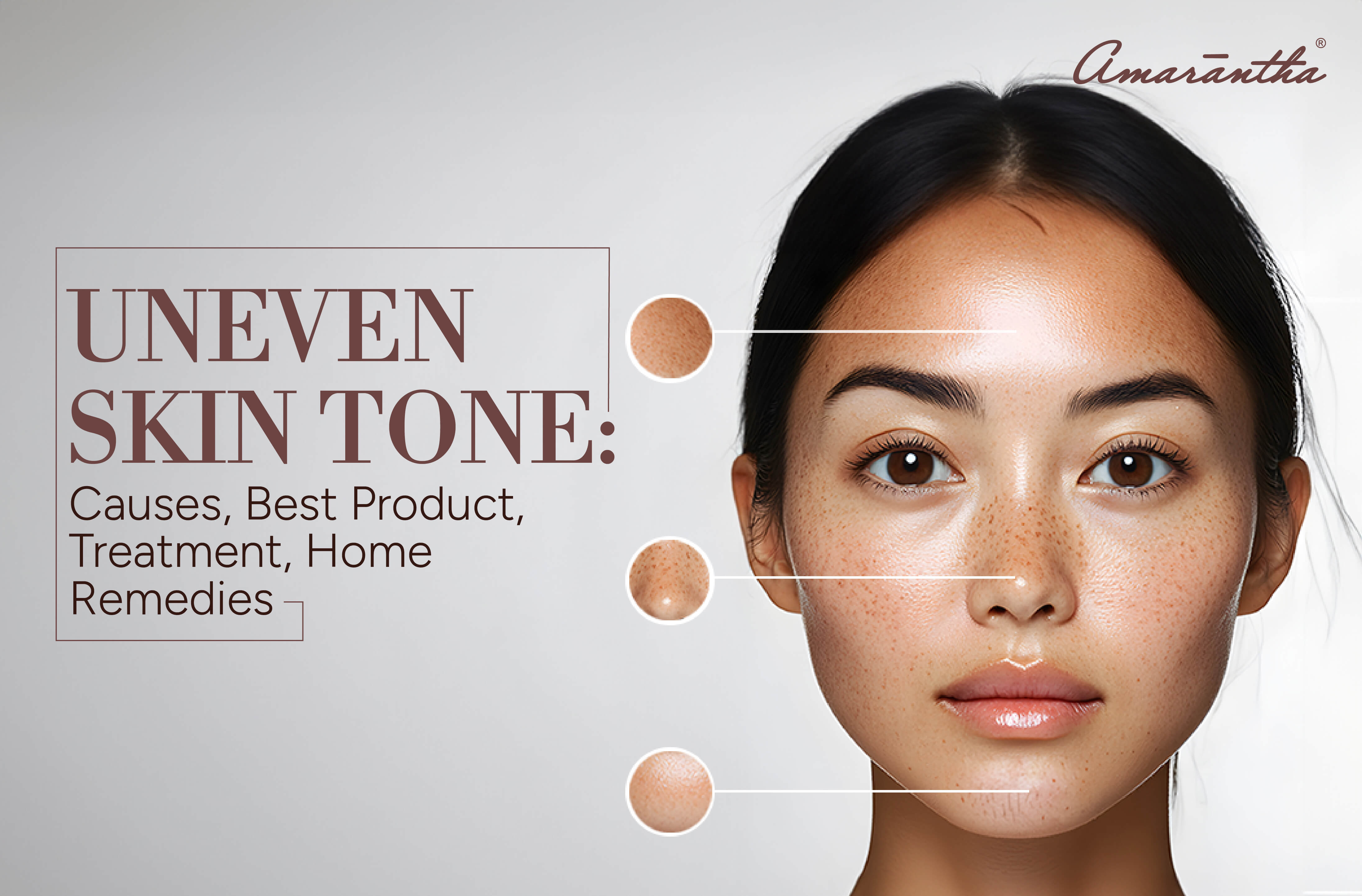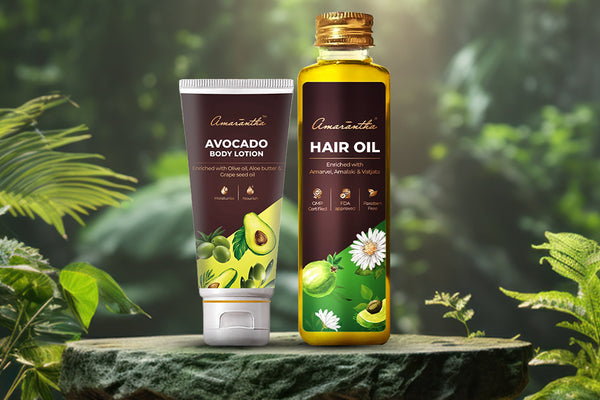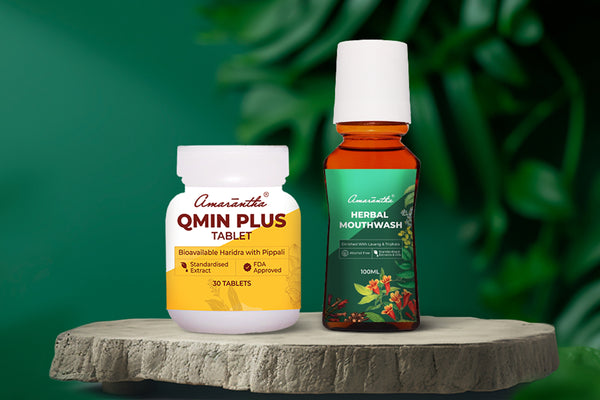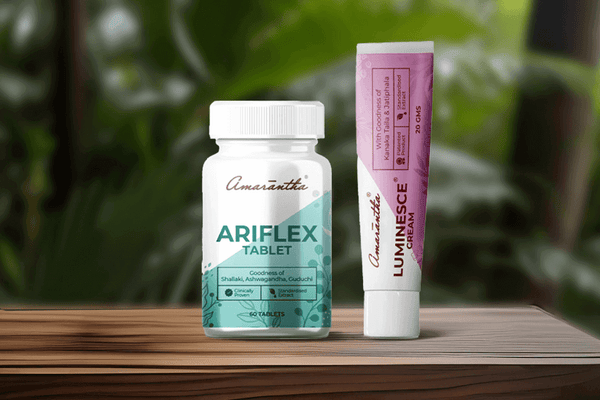Amarantha Ayurveda | 03 Nov, 2025

What Is Uneven Skin Tone?
Uneven skin tone is a skin condition where certain areas are darker or lighter than others, often due to overproduction of melanin or damage from environmental factors. Commonly affecting areas like the face, neck, and body, it can make your complexion appear patchy. Factors such as hormonal changes, sun exposure, and lifestyle choices are often the reasons for uneven skin tone. Fortunately, there are solutions for uneven skin tone, ranging from Struggling with uneven skin tone? Discover the causes, best skincare products, treatments, and home remedies to achieve a brighter, even complexion. topical treatments to professional therapies.
Common Causes of Uneven Skin Tone
Several factors contribute to uneven skin tone on face and other areas:
- Sun Exposure: Prolonged exposure to UV rays stimulates melanin production, leading to dark spots, freckles, and uneven pigmentation, while neglecting regular sunscreen application can worsen these effects, causing persistent hyperpigmentation.
- Acne and Acne Scars: Acne triggers inflammation, and the skin may produce excess melanin after the inflammation heals, leading to dark spots.
- Hormonal Changes: Fluctuations in hormones, especially during perimenopause and menopause, can increase melanin production, leading to dark spots and uneven skin tone. Similar imbalances can occur during pregnancy or with birth control use, often causing melasma.
- Skin Irritation or Inflammation: Harsh chemicals or environmental factors can cause irritation, which often leads to skin redness or dark patches after healing.
- Genetics: Genetic predispositions can make some people more prone to skin discoloration.
- Trauma or Injury: Scars from burns, cuts, or other injuries can result in either darker or lighter patches where healing occurs.
- Post-Inflammatory Hyperpigmentation (PIH): When the skin heals after acne or any other injury, it may produce excess melanin, creating stubborn dark spots.
- Harsh Skincare Products: Using products with alcohol or harsh chemicals can irritate the skin, worsening redness, and exacerbating uneven skin tone.
Effective Treatments for Uneven Skin Tone
There are various treatments available for pigmentation and uneven skin tone:
- Topical Treatments: Ingredients like Vitamin C, niacinamide, and Alpha Hydroxy Acids (AHAs) work by lightening the pigmented skin, reducing dark spots, and improving overall tone.
- Chemical Peels: These exfoliate the skin’s outer layer, helping fade dark spots and even out texture. The process encourages skin regeneration and reduces hyperpigmentation.
- Laser Therapy: Laser treatments use targeted light to break down pigmentation in the skin. They are effective for sunspots, age spots, and other discolorations.
- Microneedling: This technique involves tiny needles that puncture the skin, stimulating collagen production. It improves skin texture, reduces pigmentation, and helps even out skin tone.
- IPL & Cryotherapy: Intense Pulsed Light (IPL) uses light to target and reduce pigmentation, while cryotherapy involves freezing targeted areas to reduce dark spots.
-
Hydroquinone & Retinoids: Hydroquinone is a skin-lightening agent that reduces hyperpigmentation. Retinoids accelerate cell turnover and promote smoother skin, making it an effective option for evening out tone.
Each treatment has varying effectiveness depending on skin type and the severity of pigmentation issues. It’s best to consult with a dermatologist to choose the most suitable treatment for your skin.
Natural Home Remedies for Uneven Skin Tone
Here are some simple natural options to consider:
- Aloe Vera: Known for its soothing properties, it helps reduce pigmentation and calms the skin.
- Lemon Juice: With its natural bleaching properties, it can lighten dark spots (use with caution due to sensitivity).
- Honey and Turmeric Mask: A mix of honey and turmeric can help reduce inflammation and brighten the skin.
- Green Tea: Rich in antioxidants, it can help with pigmentation when applied topically.

When to Consult a Dermatologist
If you're struggling with uneven skin tone, here are some situations where it’s important to seek professional advice:
- Persistent Uneven Skin Tone: If home remedies and over-the-counter products haven’t worked, a dermatologist can offer specialized treatments.
- Sudden Changes in Skin Tone: Unexpected or unexplained changes should be examined for potential underlying issues.
- New or Changing Dark Spots: Any new or evolving dark spots may need a dermatologist’s evaluation to rule out skin conditions.
- Patchy Hyperpigmentation: Dark patches that don’t correlate with sun exposure or hormonal changes should be assessed.
-
Uneven Skin Texture: Rough or uneven skin texture paired with pigmentation concerns could benefit from a dermatologist’s guidance.
A dermatologist can guide you toward stronger treatments and more personalized advice.
How to Choose the Right Product for Your Skin Type
Selecting the right product is crucial for treating uneven skin tone effectively:
- For Oily Skin: Choose lightweight, non-comedogenic products that won’t clog your pores. Gel-based or water-based formulas work best.
- For Dry Skin: Opt for hydrating creams that nourish your skin while addressing pigmentation. Look for products with moisturizing ingredients like hyaluronic acid.
- For Sensitive Skin: Go for gentle, fragrance-free, and non-irritating products. Niacinamide and aloe vera-based products are a safe choice.
- For Combination Skin: Choose products that balance hydration and treatment, ensuring they don’t make your skin too oily or dry.
Patch-test any new product on a small area of your skin before applying it to your face to avoid allergic reactions.
Recommended Product for Uneven Skin Tone
For those looking for an effective solution, Luminesce Cream is an excellent option for treating uneven skin tone. This ayurvedic cream for dark spots helps to lighten pigmentation and support even complexion. It’s formulated with standardized extracts with proven efficacy, backed by patent and efficacy study. Luminesce Cream is an excellent choice for tackling uneven skin tone, making it an effective ayurvedic treatment for uneven skin tone.
Uneven Skin Tone FAQs
-
Can uneven skin tone be permanent?
No, with the right treatments and consistent skincare routine, you can significantly reduce or eliminate uneven skin tone. -
Are home remedies effective for uneven skin tone?
While home remedies can help, professional treatments are often more effective for lasting results. -
Can makeup help cover uneven skin tone?
Yes, makeup like foundation and concealer can temporarily cover uneven tone, but it won’t address the underlying cause. -
How do you know if your skin tone is uneven?
Look for areas of your skin that are noticeably darker or lighter than the rest, or notice any patchiness, especially after sun exposure.
Embrace Your Natural Glow
Uneven skin tone is a common issue but one that can be managed with the right knowledge and products. Whether you're opting for home remedies or professional treatments, a consistent skincare routine and proper protection are key to restoring balance. Stay patient, and remember that glowing, even skin is achievable with time and care.





